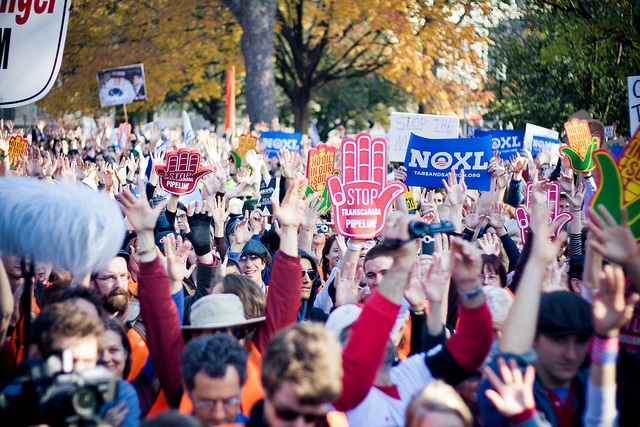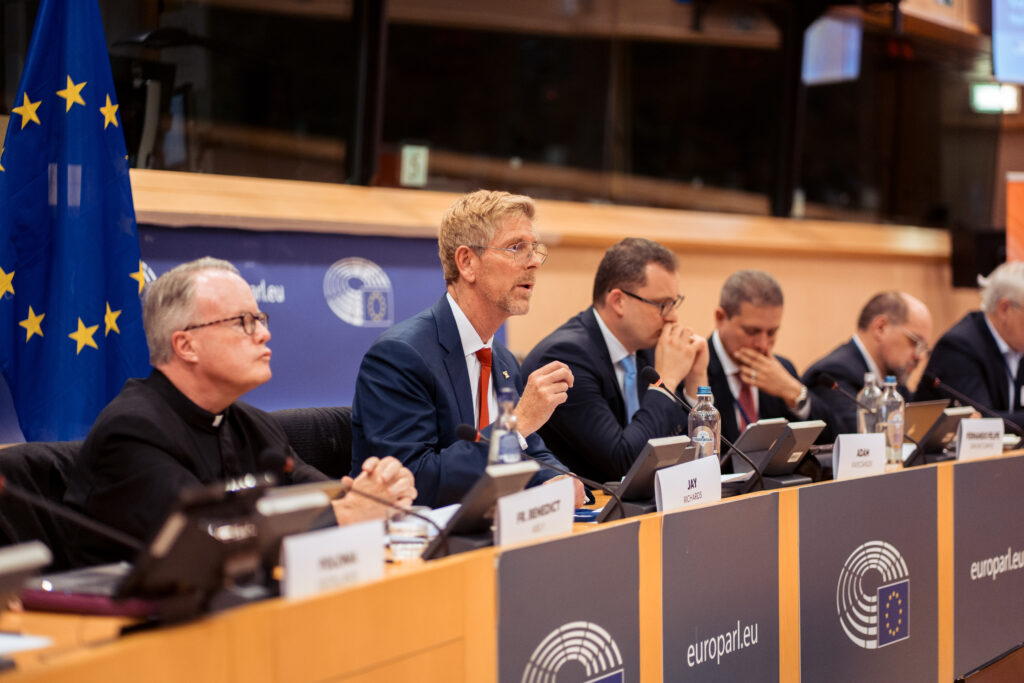This weekend, thousands of people will be out front of Barack Obama’s White House to protest the construction of the Keystone XL pipeline – a 1,879 kilometer length of pipe that will allow oil to be pumped all the way from Northern Alberta to refineries in Texas.
It isn’t the XL pipeline itself that is at the heart of the matter though. It is the 500,000 barrels of Canadian tar sands crude that will be pumped through the pipe that has so many Americans upset. And it should upset Canadians too.
For years Canada was known as one of the world’s leading environmental stewards. While a small player, Canada is known for its skills in diplomacy, and was key in the ratification of international environmental treaties like the Rio Earth Summit, the Kyoto protocol on climate pollution reduction and, of course, the Montreal Protocol to reduce acid rain and close the hole in the ozone layer.
For the most part, our country has been very good at striking a balance between the financial bottom line and the long term health of our environment and the people living in it. But that has all changed in a very short amount of time, with the rapid expansion of Alberta’s tar sands operations and a federal government that sees economic concerns superseding human health and the livability of the environment around us.
Now that has all come to a head and Canada finds itself in the center of one of the biggest controversies on the planet, with a major superpower at the center. The chickens have, so to speak, come home to roost for Prime Minister Harper and there is an opportunity to make a correction in the road that Canada is currently traveling down.
The battle over Keystone XL has been brewing for more than four years. With a final decision on Keystone expected from President Obama as soon as the next month or so, the situation has reached a fever pitch: on February 17th in front of the White House, if expectations hold true, we will witness the largest rally ever held in the U.S. on the issue of climate change. More than 20,000 people will gather in Washington D.C. to lobby for action on climate change and to pressure their president to disallow the construction of the Keystone XL pipeline.
These tens-of-thousands of everyday Americans, whether they know it or not, are protesting Canada as much as they are the Keystone project.
The question for Canadians in all this is not whether we pump tar sands oil down to the United States, but instead a much bigger question of what we want our country to be, and be known for by other people in other countries. In the name of fiscal prosperity at all expense, Stephen Harper’s conservative government has decided that Canada will tether itself to the exponential development of the tar sands for decades to come.
Since the Conservative Party and Stephen Harper have taken power, our Canadian government walked away from the Kyoto protocol, when we were one of the first countries to sign it and motivated other countries to follow our lead. Our government fought against a plan by the G20 nations to reduce fossil fuel tax breaks to companies like ExxonMobil, the most profitable company in the history of companies.
Most recently, our government passed a bill that will reduce environmental protections for proposed new tar sands operations. And most egregiously, our government is supporting lobbying efforts to convince the world that our tar sands oil is not only clean, but that is it also “ethical.”
As environmentalist and author Bill McKibben writes, this weekend’s protest is about much more than a pipeline:
“Alberta’s tar sands are the continent’s biggest carbon bomb. If you could burn all the oil in those tar sands, you’d run the atmosphere’s concentration of carbon dioxide from its current 390 parts per million (enough to cause the climate havoc we’re currently seeing) to nearly 600 parts per million, which would mean if not hell, then at least a world with a similar temperature.”
Indeed, this weekend’s protest is about the future. It’s about Canada and the national identity we will be moving forward with. Will we continue on our current path to becoming the world’s newest, and possibly last, petro-state – the country that ushers in a “new normal” of extreme weather that we’ve only seen in the movies?
Or, will we rebuild our Canada back into the country of international diplomacy and environmental action? A country whose citizens strive for a balance between environmental protection and economic development? This weekend can serve as an opportunity for Canada to join, at least in spirit, the critical mass in Washington D.C. and let our neighbors to the South know that we too are concerned about the future.
Considering the majority of Canadians did not vote for Stephen Harper, and most believe that he and his government are doing a poor job protecting the environment, the timing of the #ForwardOnClimate rally couldn’t be better.
If we can’t be there in person, the least we can do is spend a few minutes this week on our smart phones or laptops getting the word out on Facebook and Twitter. It is a far second to showing up, but I can tell you from experience, that every bit counts and you never know what it will be that breaks through the noise.
Send a message of support using the hashtag #forwardonclimate and tell rally participants why, as a Canadian, you support their activities to stop the Keystone Pipeline project.
Share a message on Facebook, by clicking here and sharing the “Forward on Climate” petition, set up by one of the rally organizers 350.org, and tell rally participants that we have their back.
It’s the Canadian thing to do, eh.
Subscribe to our newsletter
Stay up to date with DeSmog news and alerts






